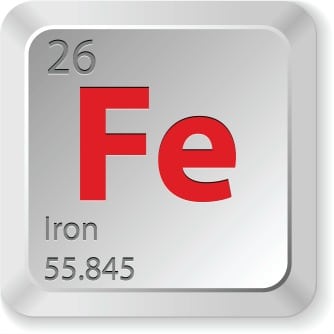Previous studies submit that some metals, including iron, accumulate in human tissues during aging and that toxic levels of iron have been linked to neurologic diseases, such as Alzheimer’s and Parkinson’s diseases. Gordon Lithgow, from Buck Institute for Research on Aging (California, USA), and colleagues employed Caenorhabditis elegans (roundworm) to study the role of iron accumulation in the aging process. The researchers fed young roundworms (4 days old) iron, observing that they aged within a few days (to look like 15-day old worms). As well, the team administered CaEDTA, an FDA-approved metal chelator (used in humans to treat lead poisoning), observing that the agent not only slowed the age-related accumulation of iron, but it extended the healthspan and lifespan of the worms. Observing that: “Increased dietary iron significantly accelerated the age-related accumulation of insoluble protein, a molecular pathology of aging,” the study authors submit that “these results suggest that a loss of metallostasis with aging contributes to age-related protein aggregation.
Iron Accelerates Aging
Klang IM, Schilling B, Sorensen DJ, Sahu AK, Kapahi P, Andersen JK, Swoboda P, Killilea DW, Gibson BW, Lithgow GJ. “Iron promotes protein insolubility and aging in C. elegans.” Aging (Albany NY). 2014 Nov;6(11):975-91.
RELATED ARTICLES




